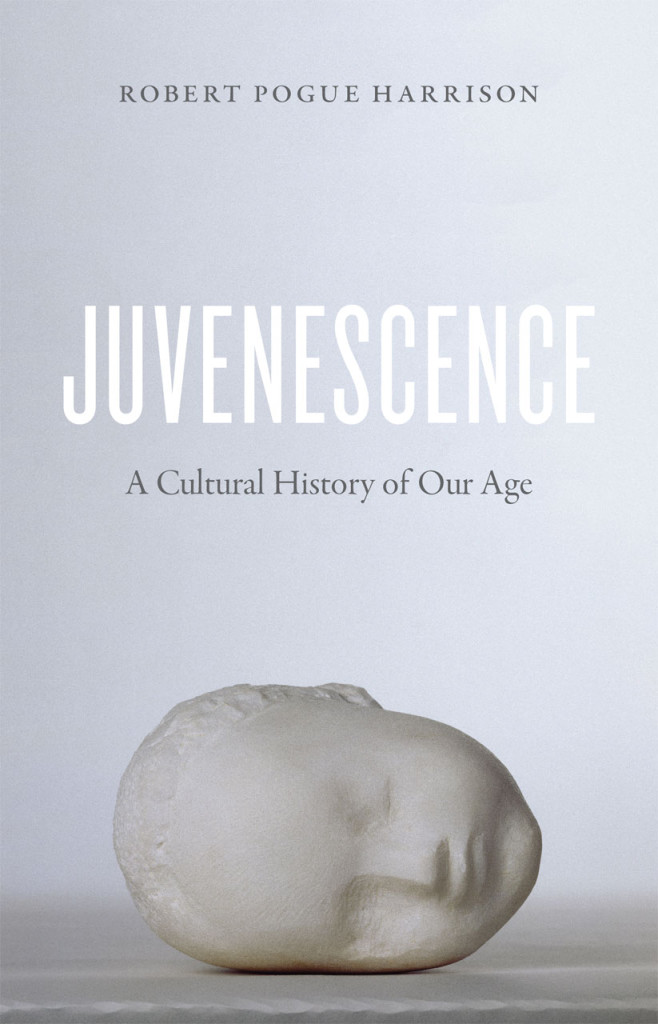
Singled out for praise. Here’s Robert Harrison on the bucolic Stanford grounds in a recent photo.
Is Robert Pogue Harrison the “single most significant writer in the humanities today”? I expect there’s lots of competition for the title, but one writer casts his vote in the current issue of the Southern Humanities Review. We’ve written about Robert so many times that I can’t list them all, but you could start here and here and here and here.
David W. Price builds his case on Robert’s most recent book, Juvenescence, but not only. He points out that the author “developed a particular style of writing that takes readers on a journey through time, tracing a particular concept or trope as it manifests itself in a wide array of literary and philosophical works” – and he recalls that the same approach winds through three of his previous books, too: Forests: The Shadow of Civilization, The Dominion of the Dead, and Gardens: An Essay on the Human Condition.
 “In each of his books, Harrison demonstrates that responses to the most fundamental human questions often appear in the most unlikely places and that it takes a formidable intellect and an Auerbach-like memory to be able to discern a particular thread that runs through the tradition.”
“In each of his books, Harrison demonstrates that responses to the most fundamental human questions often appear in the most unlikely places and that it takes a formidable intellect and an Auerbach-like memory to be able to discern a particular thread that runs through the tradition.”
Price flags a part of the book that caught my eye, too, especially since Robert has expressed some of the same thoughts elsewhere (try here):
Invoking Benjamin, he points out that “the newness that constant change brings into the world does not replace the ruins, rather, . . . it merely adds to the rubble.” For Harrison, real education involves immersing students in history and allowing them to hear “the dead speak in their own untimely voices.” Such an education appears increasingly hard to come by. Harrison argues that our current age “has declared all-out war on the dark continent of inwardness, silence, and attention, of the self in its wholeness wholly attending.” Those devices that miniaturize the world on a screen and enthrall us actually inhibit our maturation, claims Harrison. “[F]or some reason,” he writes, “the age demands that we remain at all times connected to the Borg collective, that we join its hive and hear inside our heads not the call of world renewal but the incessant drone that fills the network of globalized interconnection.” Harrison’s observations here give us pause, especially any of us who work within the broad field of education.
Price’s encomium includes a sort of prophecy: “In the not too distant future, there will be a book written on the works of Robert Pogue Harrison, and that author will surely note that at the heart of Harrison’s critical consciousness one finds his careful reading and profound understanding of the philosophy of Giambattista Vico. Just as Vico’s New Science grounded Harrison’s understanding of the relation between civilization and nature in his book Forests, the eccentric Italian’s philosophy orients Harrison’s understanding of the youthful nature of our current world.”
It’s all online. Read the whole thing here.





















